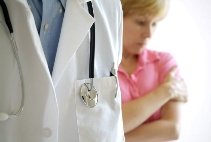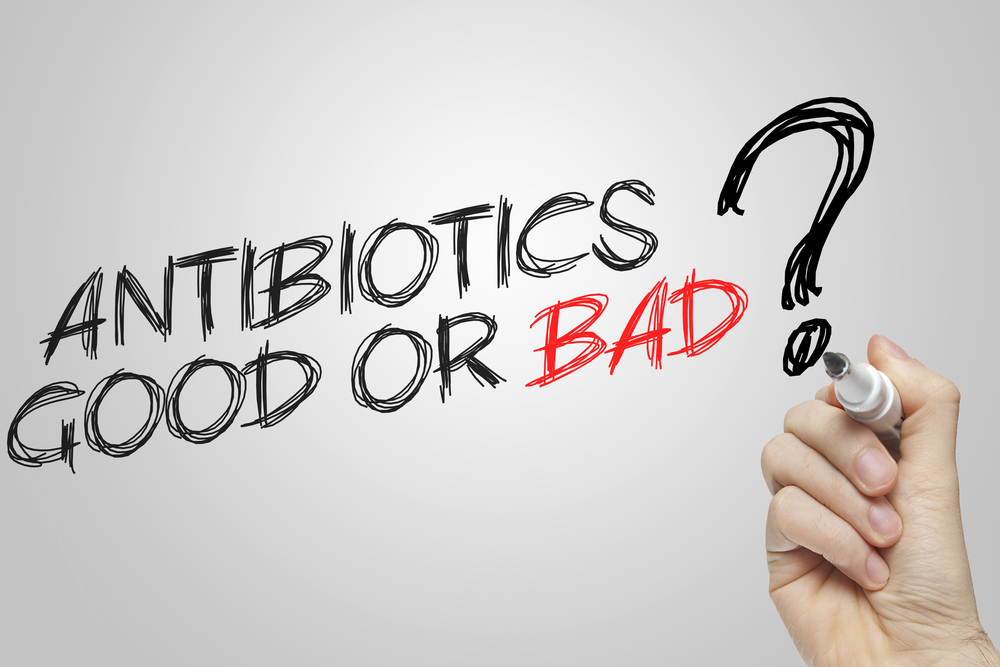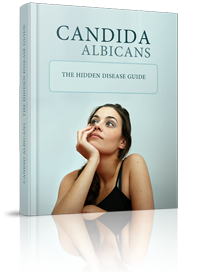What Causes Cancer
If you're like many people, including doctors, you aren't sure what causes cancer.
Research shows that a Candida overgrowth may be the root cause of cancer. Using a Candida treatment program as an adjunct to other treatments may be the fastest way to a cancer free future!
What you may know about cancer can be frightening:
- On average, 1.4 Million new cancer cases are diagnosed annually in the United States
- 559,650 people died of cancer in 2007, and that is consistent with the annual mortality rate year after year in the U.S. 1,2
What is the Connection to Candidiasis?
As long ago as 1913, Nobelaureate Dr. Johannes Fibiger of Denmark proved the connection between cancer and fungal growths when he fed parasitic larvae–carrying cockroaches to healthy rats. The rats subsequently developed "cancer swellings".3
Candidiasis (also known as Candida) is an overgrowth of fungal parasite within the body. Its connection to cancer may come in many forms.
One study suggests that yeast is the infection at the heart of most cancer cells. And the rise of cancer rates in first world countries over the last 80 years is due to the "modern" carbohydrate-rich, fiber-weak diet.
Carbohydrates in the form of processed white sugar, refined wheat and other foods with high-glycemic counts feed the yeast fungus so that it grows rapidly and disrupts the normal balance of good bacteria and bad.
This imbalance results in lower immune response, slowed wound healing and ultimately in the infection of healthy cells by parasitic yeast.
These infections result in cancer in much the way Dr Fibiger’s rats contracted cancer. As proof of this theory, in 2001 Helicobacter pylori (a form of bacteria) was found to cause stomach cancer.
In addition, Human papilloma virus (HPV) is known to cause cervical cancer. And in June 2006, Cancer Watch reported that infections of microbes in the intestines can cause colon cancer.4
Another theory suggests that the widespread use of antibiotics, particularly in the UK and US, kills all bacteria – including the stuff needed to fight disease, cancer and fungus.
This terrible combination of blocked immune response and parasitic overgrowth of the fungus enables cancer cells to grow rapidly.
In fact, the Journal of the American Medical Association reported in Feb
2004 that women who took 25 doses of antibiotics (or more than 500 days
worth) had twice the chance of contracting breast cancer as those who
took no antibiotics in the same period.5
Is Yeast What Causes Cancer?
In an extensive review of what causes cancer, in his book CANCER, Cause, Cure and Cover Up, Ronald Gdanski examines the many similarities between the growth patterns of cancer cells and parasitic yeast.
In it he points out that when an injury or infection occurs, the normal human cell multiplies its "growth factor" (its ability to create new cells) in order to heal the injury.
When parasitic yeast infiltrates an injury or infection, it acts in much the same way as the host cell – multiplying its growth factor.
As they inter-mingle, they create mutated cells with flaws in the cell walls that prevent the collection of cells from connecting properly to finally close the wound. The result is overgrowth of mutated cells – in effect cancer.
In addition, Dr. Carolyn Dean (who is both a medical doctor and alternative health expert), when considering what causes cancer says,
"It is a scientific fact that, when yeast cells reach a certain critical mass, they change from a round budding stage to a thread-like tissue-invasive stage. . . In the small intestine, the yeast threads poke microscopic holes in the intestinal lining.
Such a phenomenon is called "leaky gut" – a superhighway to the blood stream with nothing to block toxins trickling across the gut lining.
Instead of absorbing life-giving nutrients through an intact intestinal wall, yeast’s chemical by-products, (all 180 of them), and the inflammatory products they produce, (undigested food molecules, toxins, and other chemicals), take a one-way ride." 6
- Dr. Carolyn Dean
That one way ride creates a chronic fungal infection that leaves the individual vulnerable to the cancer effect described above.
Is Candidiasis What Causes Cancer?
Recently, an Italian oncologist, Dr. Tullio Simoncini, points out that at the most basic level cancer and yeast fungus have very similar (if not identical) characteristics.
- Both cancer and Candida feed on sugar.
- Both grow and reproduce only in anaerobic environments. 7,8
- Both need an acidic environment to survive.
- When you probe cancer cells within the human body, they appear white in color and uneven in texture just like yeast.
You have only to observe Oral Thrush (Candida of the mouth) to realize that they appear to be one and the same.
Further, in a comprehensive study by Lankenau Hospital Research Institute and the Institute for Cancer Research (Philadelphia, Pennsylvania), researchers found fungi present in virtually all cancerous tumors they examined.9
Summary
In sum, Candida may very well be what causes cancer. If that is true, then simply cutting away the cancerous growth and treating with chemotherapy and radiation is NOT ENOUGH.
The invasive yeast fungus should be removed with an anti-fungal treatment and the Candida diet should be used to decrease yeast-promoting foods.
Natural antifungal treatments are inexpensive, have minimal side effects and should be a valued adjunct to other "modern" medical treatments for cancer.
If you or a loved one has been diagnosed with cancer, please talk to your doctor to see if natural antifungal treatments will interfere with your medical treatment. If not it may be worth the effort to try them. Since cancer cells feed on sugar, the Candida Diet is worth a try as well.
The worst case scenario is that they will do nothing. The best case scenario is they may help cure your cancer!
Recommended Reading
These books go into more depth on what causes cancer. If you or a loved one is afflicted, inform yourself as much as you can.
It is up to you to take control of your health. The medical establishment is more concerned with making money than any one patients outcome. It's sad but true.
eBook - Download Instantly
- Cousineau, Frank (2006) Cancer Breakthrough USA. eBook. Download Now!
This book is all about clinics in the US that provide alternative treatments for cancer. They cannot advertise their services for fear of prosecution. One of the clinics can clear up most cancers in about 21 days! It also discusses how yeast and fungus are linked to cancer, and how to get rid of these pesky invaders
Hardcover and Paperback Books
- Kaufmann, Doug A. (2002) The Germ that Causes Cancer. Mediatrition. ISBN-0970341814
Doug Kaufmann has studied Candida for years and has written 9 books on the subject. He knows what causes cancer - it is Candida. This is the most definitive book I have ever read on the subject of the link between cancer and fungi. It is well thought out and superbly researched. This book is a must for anyone who has cancer or anyone with a family or friend with cancer. I hope more people use it for PREVENTING cancer! The program is easy to follow. I appreciate the easy to understand scientific documentation. - Gdanski, Ron (2000) CANCER : Cause, Cure and Cover-up. New Century Pr. ISBN-09685665
An account of why the public is being misled from the true cause of cancer. The truth is that many cancer remedies are too cheap to be profitable for the industry. This book describes genetics, the mechanism behind cancer and fungal diseases. A good book to show the lay person that the theories of genetics and cancer seem absurd. - Henderson, Bill (2004) Cancer-Free - Your Guide to Gentle, Non-toxic Healing. ISBN-1601451830
After his wife died from ovarian cancer, Bill researched over 350 alternative cancer treatments. His research has helped over 2000 people cure their cancer. His system uses food and supplements you can buy at health food stores (it costs about $104 per month). The regimen usually takes 6-8 weeks to work. A small price to pay for your health.
- Cantwell, Alan (1990) The Cancer Microbe. Aries Rising Pr. ISBN-0917211014
Modern medical science refuses to recognize what causes cancer. Dr. Cantwell has spent a lifetime studying and documenting that a microbe is the hidden killer in cancer and other diseases. If you have ever wondered what causes cancer, and why doctors can't cure it, this is the informative book you must read. - Chamberlain, Jonathan (2008) Cancer: The Complete Recovery Guide. Long Island Press. ISBN-0954596013
In this book, Jonathan Chamberlain describes what causes cancer; what the mainstream medical approaches are and what the alternative approaches are. He lists the pros and cons of surgery, radiation and chemotherapy. With the alternative therapies, he lists the tests you might want to consider, the detox regimes, the diets, vitamins, herbs, supplements, machines and therapies that could give you a 90% chance of recovery from cancer. - Bell, Robert (1997) Prevention and Treatment of Cancer. Kessinger Publishing. ISBN-156459890X
Robert Bell discusses why surgery is useless in curing cancer. He talks about what causes cancer as well as prevention. He really stresses the importance of diet (he recommends a vegetarian diet which may not be best for everyone). He draws many parallels between cancer and fungal growths.
References
|
1. |
Jemal A, Siegel R, Ward E, Murray T, Xu J, Smigal C, Thun MJ. (Mar-Apr 2006). "Cancer statistics 2006." CA Cancer J Clin. 56(2): 106-30. [Abstract] |
|
2. |
Jemal A, Siegel R, Ward E, Murray T, Xu J, Thun MJ. (Jan-Feb 2007). "Cancer statistics, 2007." CA Cancer J Clin 57(1): 43-66. [Abstract] |
|
3. |
Fibiger, J MD (January 1913), "PROFESSOR CREATES CANCER; Dr. Fibiger of Copenhagen Develops It by Feeding Cockroaches to Rats.", The New York Times [Article] |
|
4. |
Woollams, C. Can Candida Cause Cancer? Retrieved on 8/4/2007. |
|
5. |
Harpe, S PharmD, MPH, PhD (Feb 2004). "Use of Antibiotics and Risk of Cancer." Journal of the American Medical Association 291(22): 2699. [Abstract] |
|
6. |
Dean, C. MD, ND (Sept 2006), "Yeast and Inflammation.", Total Health and Longevity Magazine. [Abstract] |
|
7. |
Mernone, R. What Causes Cancer? What Can You Do About It?. Retrieved on 8/5/2007. |
|
8. |
Sutton, S. What causes cancer?. Retrieved on 8/5/2007. |
|
9. |
Diller, I PhD, Fisher, M AB (Oct 1950). "Isolation of Fungi from Transplanted, Chemically Induced and Spontaneous tumors." Amer. Assoc. of Cancer Research 10: 595-603. [Abstract] |
Home > What Causes Cancer









New! Comments
Have your say about what you just read! Leave me a comment in the box below.